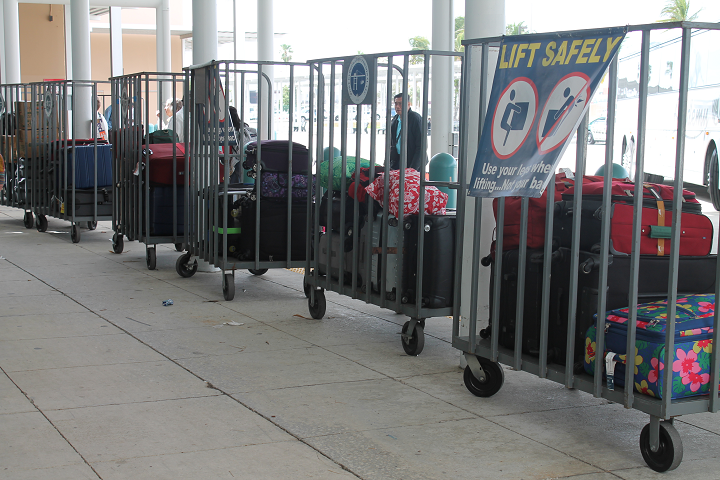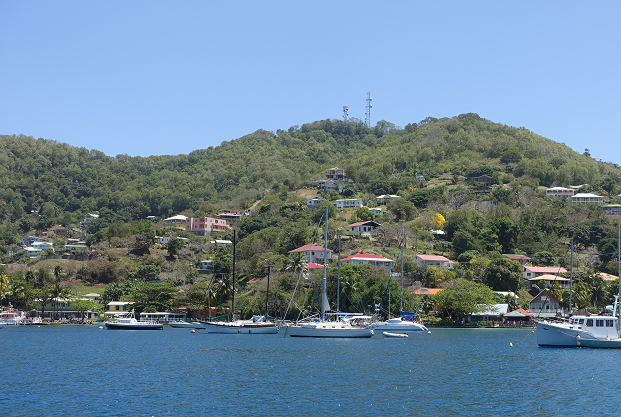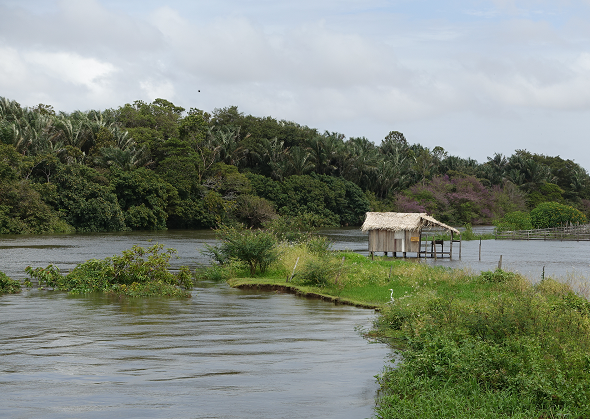For those of us who are on cruises soon, a prevalent question can be summed up in the first two lines of The Clash’s 1982 hit, Should I Stay Or Should I Go?
It’s an easier question to answer for hesitant travelers who stand to lose only fractions of their substantial investments than it is for those who will lose all that they spent on their holidays if they cancel. In case you’re wondering how some travelers stand to lose only part of their investments should they cancel, we’re referring to Cancel For Any Reason travel insurance. These comprehensive policies cost more than standard travel insurance policies and in most cases will not cover all of your losses. But for hesitant travelers, Cancel For Any Reason can give peace of mind – and generally return a fair chunk of what they paid for their holidays.

Apart from trip insurance, nearly all cruise companies, as well as airlines, are stepping up to allow travelers to change their travel plans without penalties. We recommend that you check with your cruise company and airline – or your cruise consultant – for current policies specific to your travel providers.
UPDATE: On March 8, 2020, the U.S. Department of State and the CDC recommended that “travelers, particularly those with underlying health issues, defer all cruise ship travel worldwide.” We find the language ambiguous because of the clause “particularly those with underlying health issues.” What about travelers who are in good health? Are they okay if they don’t defer all cruise ship travel? Of course, the worry is increased risk for exposure, but that could happen wherever there are crowds. Will the CDC next recommend not going to movies? As of this writing, no other country that we know of recommends that its citizens not get on airplanes or go on cruises.
In April, I will travel in France with 52 others on three barge cruises. Some are doing back-to-back trips with me, meaning two barge trips in a row. Though some have expressed concern about COVID-19 and some have expressed a desire to postpone, the consensus is that we’re moving forward with our plans. We’ll be careful, carrying with us Lysol wipes, hand sanitizer and following the Centers for Disease Control and Prevention’s recommendations for safe travel. Our trip is still several weeks away, and much could change between now and then, but for now, we’re a go.
This is not the first time that I’ve asked myself, Should I Stay or Should I Go? Throughout any traveler’s life, there have been periods when going abroad seemed to carry more risks than at other times. Back in 2012, two days after the Costa Concordia sank, killing 32 passengers, I thought long and hard about the inherent dangers of travel. I penned a piece then for our sister site, avidcruiser.com, titled, Tragedy Strikes And A Question Is Posed: What Is Your Tolerance For Travel Risks? Today, in the face of what appears to be nearing a global pandemic, the question is perhaps even more relevant than it was back then.
Though I worry as much as anyone, my tolerance for risk is quite high. I suppose I am able to rationalize statistics. Yes, as of this writing, COVID-19 has killed 19 people in France. But it has not killed the other 66,999,981 of the French people. Nineteen are gone. But nearly 67 million are still living. In contrast, the virus has claimed more lives in the United States. It’s a bit absurd to look at the numbers that way perhaps, but you get my point.

What has my higher tolerance for risk done for me? It has shown me a beautiful world, for starters. When I was 20, I straddled the seat of a bicycle and began pedaling across America. I knew the risks of riding largely unprotected on the road, but I reasoned that I would rather spend my life living instead of simply existing. That attitude has served me well for nearly four decades now.
Besides, even a cautious life is a risky one. Knowingly or not, we take chances every day. We know the risks of dying in car accidents and other activities, but we’re all lucky to be alive at all. In one of my favorite books, A Short History of Nearly Everything, author Bill Bryson writes: “If this book has a lesson, it is that we are awfully lucky to be here, and by ‘we’ I mean every living thing. To attain any kind of life in this universe of ours appears to be quite an achievement.”
When you begin your day with the notion that we are indeed lucky to be here, life takes on new dimensions — and is filled with new possibilities. We are entitled to nothing — not even one day of living. Being lucky liberates us to live, and of course, should we wish to do so, to travel so that we can see and experience this beautiful planet that we call home.

Should You Stay Or Should You Go? The decision is simple. We go on with our lives or we withdraw into our protective shells. No matter which you choose, life is fraught with dangers, even in our hometowns. I don’t know about you, but I choose to live my life, despite the dangers, consequences and risks. I do so in part because of words that inspired me since I was a young man.
I would rather be ashes than dust!
I would rather that my spark should burn out in a brilliant blaze than it should be stifled by dry-rot.
I would rather be a superb meteor, every atom of me in magnificent glow, than a sleepy and permanent planet.
The function of man is to live, not to exist.
I shall not waste my days trying to prolong them.
I shall use my time. — Jack London
Now, grab the hand of your partner (or if you’re alone, go solo), retreat to your living room and turn up The Clash. I’ve embedded the song here. Push play and dance. It will do your soul good. Trust me. So far as we know, we get one shot at living, and this is it. And as this is it, we may as well imbue it as much as possible with what the French characterize as joie de vivre, or the joy of living.
See cruise line updates and temporary cancellation policies here.



